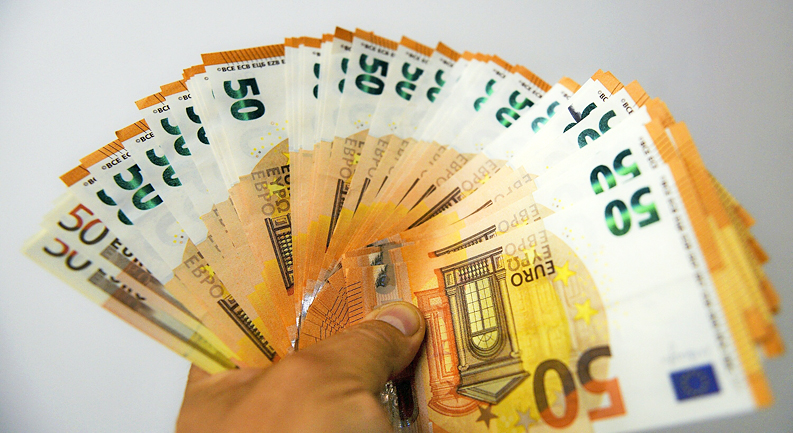FRANKFURT, GERMANY (AP) – The European Central Bank (ECB) piled on another outsized interest rate hike aimed at squelching out-of-control inflation, increasing rates at the fastest pace in the euro currency’s history and underscoring the bank’s determination to control prices despite the threat of recession.
The 25-member governing council raised its interest rate benchmarks by three-quarters of a per centage point at a meeting Thursday in Frankfurt, matching its record increase from last month and joining the United States (US) Federal Reserve (Fed) in making a series of rapid hikes to tackle soaring consumer prices.
ECB President Christine Lagarde acknowledged the risk is growing that the 19-country eurozone may plunge into recession but said “inflation remains far too high” and will stay high for an extended period, so the bank expects to keep hiking.
“We are not done yet. There is more ground to cover,” she told reporters, despite bank expectations that the economy will weaken the rest of this year and beginning of next.
“In the present state of uncertainty, with the likelihood of recession looming much more on the horizon … everyone has to do their job,” Lagarde said. “Our job is price stability. This is our primary mandate, and we are riveted to that.”
Central banks around the world are rapidly raising interest rates that steer the cost of credit for businesses and consumers. Their goal is to halt galloping inflation fuelled by high energy prices tied to Russia’s war in Ukraine, post-pandemic supply bottlenecks, and reviving demand for goods and services after COVID-19 restrictions eased. The Fed raised rates by three-quarters of a point for the third straight time last month.

Quarter-point increases have usually been the norm for central banks. But that was before inflation spiked to 9.9 per cent in the eurozone, fuelled by higher prices for natural gas and electricity after Russia slashed gas supplies during the war in Ukraine.
“A long-lasting war in Ukraine remains a significant risk,” Lagarde said. “Confidence could deteriorate further and supply side constraints could worsen again. Energy and food costs could also remain persistently higher than expected. A weakening world economy could be an additional drag on growth in the euro area.”
Inflation robs consumers of purchasing power, leading many economists to pencil in a recession for the end of this year and the beginning of next year in the 19 countries that use the euro as their currency. While inflation in the US is near 40-year highs of 8.2 per cent, fuelled in part by more pandemic support spending than in Europe, the American economy grew in the third quarter after shrinking in the first half of 2022. The ECB has now raised rates by a full two per centage points in just three months, distance that took 18 months to cover during its last extended hiking phase in 2005-2007 and 17 months in 1999-2000. The benchmark for short-term lending to banks now stands at two per cent, a level last seen in March 2009.
The next meeting in December may see a smaller rate increase, analysts say.
“We expect the pace of hiking to slow, given that the window of opportunity to raise interest rates is narrowing with a recession in the euro area looming,” said senior macro strategist at Quintet Private Bank Nicolas Sopel.
Higher rates can control inflation by making it more expensive to borrow, spend and invest, lowering demand for goods. But the effort to raise rates also has raised concerns about their impact on economic growth and on markets for stocks and bonds.
To sop up economic stimulus efforts that have outlived their purpose now that rates are rising, Lagarde encouraged banks to repay the cheap, long-term loans they received from the ECB to help them keep lending to businesses. The central bank raised the interest rates on the loans and said it would let banks voluntarily repay the money.
Another potentially fraught issue in drawing down stimulus without triggering turmoil in nervous markets is what to do with the bank’s EUR4.9 trillion (USD4.9 trillion) pile of bonds bought under earlier efforts to lower market borrowing costs. That will be not be outlined until the December meeting, Lagarde said.





